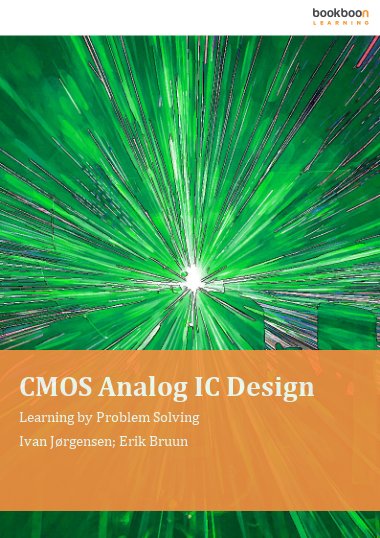This book is a companion to the textbook ‘CMOS Analog IC Design: Fundamentals’ by Erik Bruun, published by bookboon. It contains problems which can be solved using the theory presented in the textbook. For solving the problems, you may use analytical methods and Spice simulations. The Spice simulator used for this book is LTspice. The book ‘CMOS Integrated Circuit Simulation with LTspice’ by Erik Bruun and also published by bookboon is an introduction to LTspice.
About the Authors
Erik Bruun has been teaching analog electronics and CMOS integrated circuit design for more than 25 years at the Technical University of Denmark. From 1989 to 2016, Erik was a Professor in Analog Electronics and since 2016 he has continued his professional activities as a Professor Emeritus.
In his teaching, Erik has always emphasized the presentation of complex technical matters in an easily understandable way, so that the students can understand and learn the essentials of the topics being taught. This is also the hallmark of his textbooks about fundamentals of CMOS integrated circuit design and CMOS integrated circuit simulation.
While he has been teaching the fundamentals of analog electronics to hundreds of students, Erik has also been engaged in research and in research supervision. During the years, Erik has supervised more than 20 PhD students, now positioned in prestigious jobs in industry and academia around the world.
His own publications count more than 100 scientific papers presented in journals and at international conferences.
Prior to his academic career, Erik spent about 10 years in industry and was directly involved in industrial development projects for space electronics and computer systems.
Ivan Jørgensen - (M.Sc. in 1993 and Ph.D. in 1997) has 30 years of with analog integrated circuit design. In 1997 he started in the hearing aids company Oticon as IC designer (5 years) and during the next 10 years he worked as Competence Manager, Systems Manager and Director for a group up to 20 people, also managing several IC projects. In 2012 he started as an Ass. Professor at DTU doing research and teaching in analog integrated circuit design.Ivan has made 60 publications holds 10 patents.


